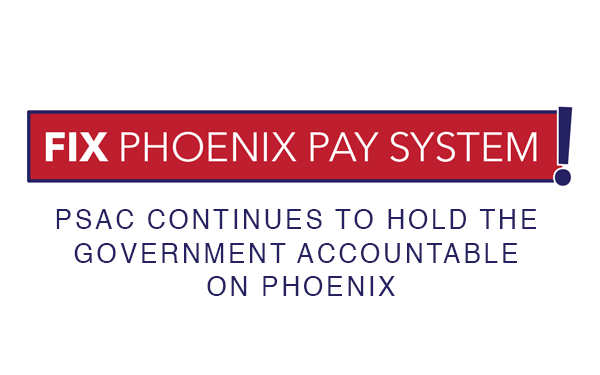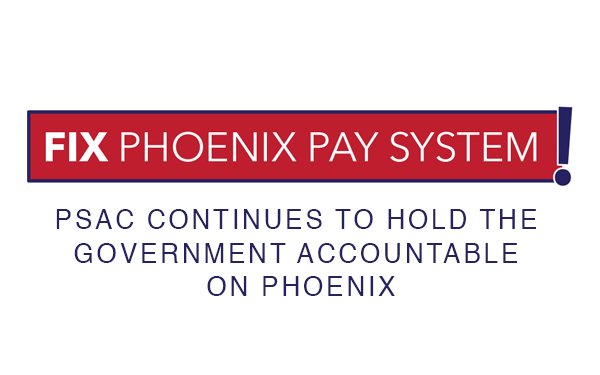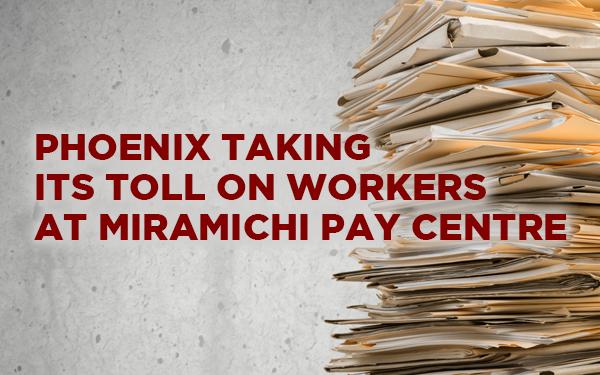On November 16, the government provided an update on the Phoenix pay system. We learned that there are still a lot of problems to deal with.
“Our priority remains getting public service workers paid correctly and on-time. Unfortunately, there is still a lot of work to be done,” said Chris Aylward, PSAC National Executive Vice-President. “The government should have listened to us from the beginning. We told them not to go ahead with the new pay system, but now, it’s time to move forward. We want to help the government fix Phoenix so that our members can be made whole.”
Public service workers waiting for changes
The government confirmed that it is two months – or 200,000 cases – behind in processing “pay transactions” under the new Phoenix pay system.
This means difficult financial consequences for some PSAC members.
“Pay transactions” refer to changes in an employee’s pay. This includes initiating pay for new hires, changing pay for promotions or leaves of absence, and final payments for employees leaving the public service.
No date for Phoenix fix
Lemay gave no date for when the system will be fixed, but said that “over the next several months, we will return to normal processing times.”
“PSAC is working with the government in every way we can to help fix Phoenix,” said Aylward.
Phoenix generated membership cards with incorrect surname
It has come to our attention that some of our members may have received a new membership card with an incorrect surname.
Typically, a new card is generated automatically when we receive an update to a member’s surname from the employer.
Updates produced by the new Phoenix system are received monthly along with union dues remittance information.
How to resolve issue
- Review your last online Phoenix pay stub to ensure that the surname entered by your employer is correct.
- If the surname appearing on your pay stub is incorrect, submit a Phoenix feedback form or call the call centre at 1-855-686-4729 to report the issue and to ensure a correction is made.
- Once your employer makes the correction in the Phoenix pay system – and PSAC receives this new information – a new card with your correct surname will be generated and sent to you.
If you have questions, please contact PSAC Membership Administration Officer, Amélie Laviolette 613-560-2612 or Laviola@psac-afpc.com.
We apologize for this inconvenience.



















